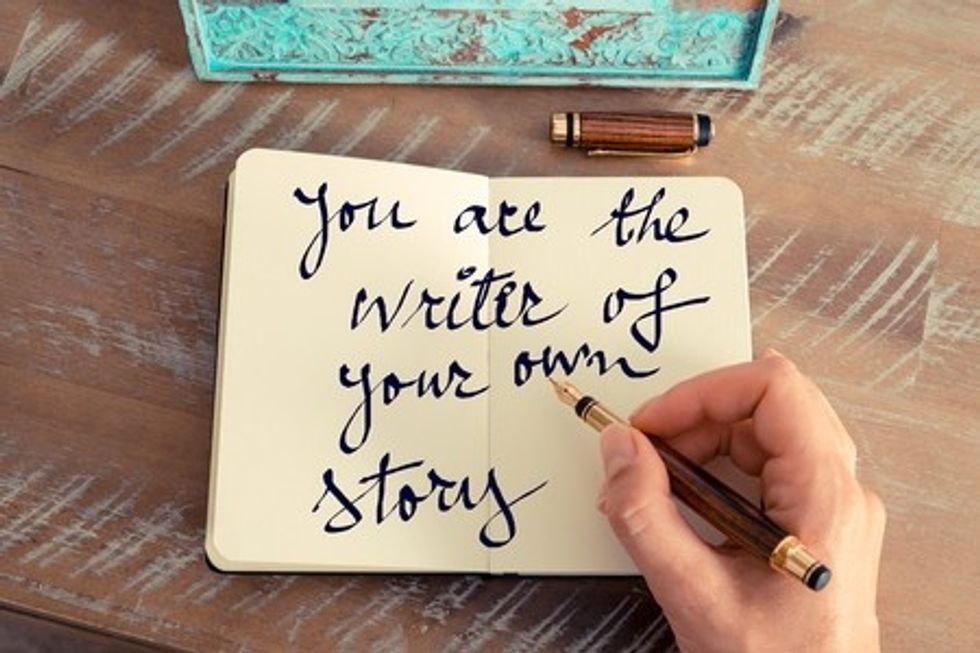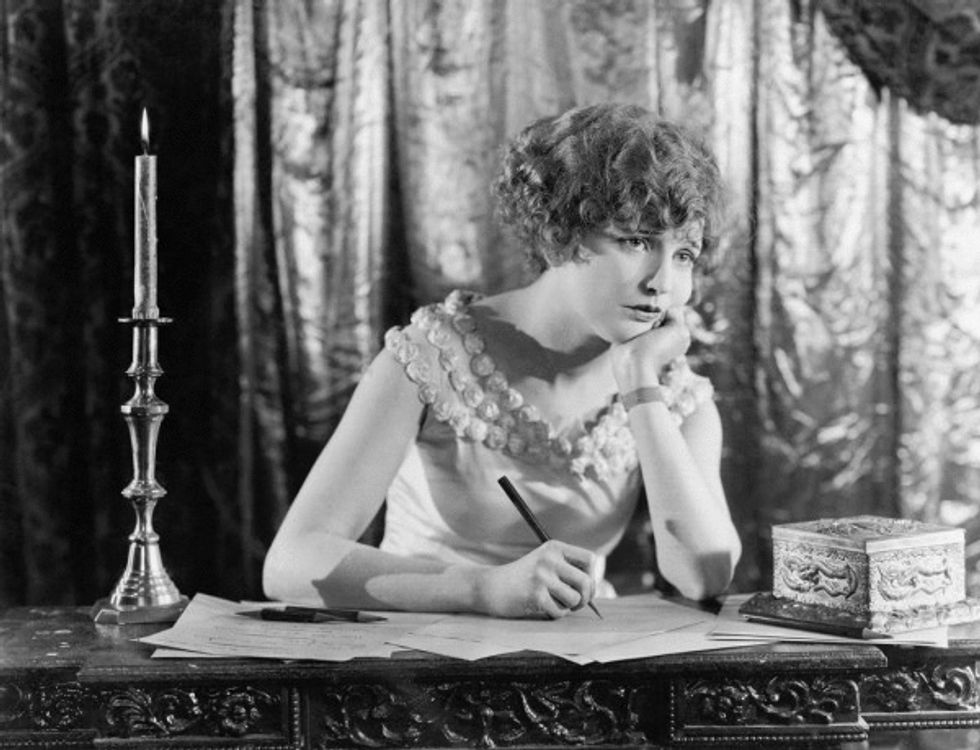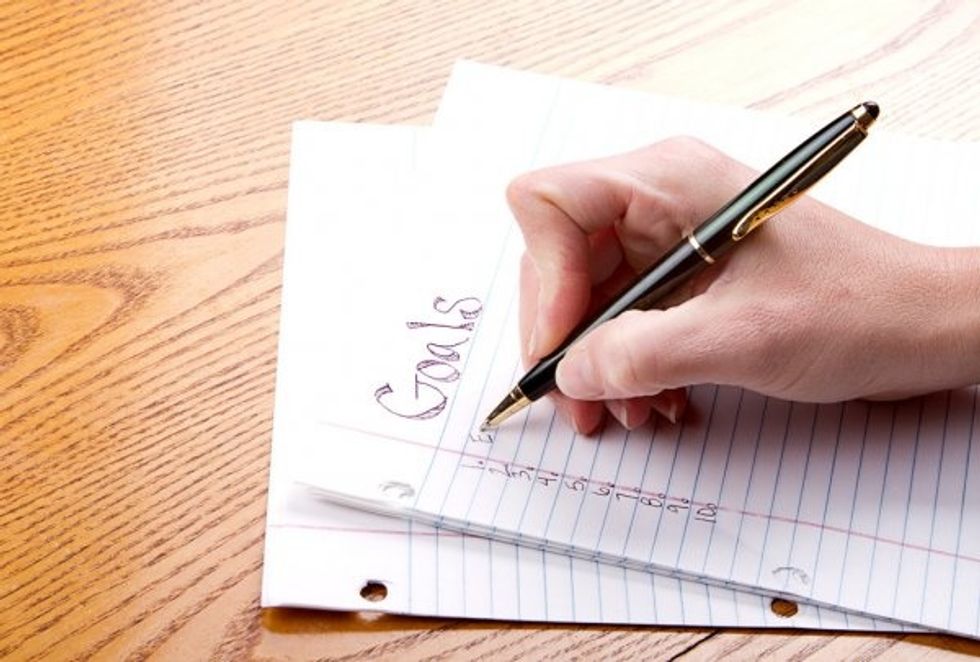It's easy to borrow characters from tropes or people you may know in real life. Many famous stories carry the same types of categories of character: an over-confident flirt, a passive youngster finding their confidence, or a wise elder stuck in their ways. It's been done so many times, so it must be foolproof, right? I've fallen trap to this many times, as well. While it's a truly great starting point, audiences and critics will see through the attempt unless you deepen the character in your own way. Think about these three point next time you start shaping a character.
Why do they do it?

An encouraging line.
The answer isn't simply because they're a flirt or over-confident. Think about the character's past even back to a toddler. What happened to make them who they are today? Personality is shaped party by innate tendencies but also partly by external influences. The past doesn't have to come up in your story depending on the circumstances. However, simply knowing the character's backstory and any traumatic or defining moments in their life will help you write that character better in the present. Creating a person who existed outside of the current story and past it (think friends and family or places they've visited before) will in turn make them, and your story, feel more 3-D for the reader. If you feel like you know your character like an old friend, the audience will be able to connect to them, too.
Why do they feel it?

A melancholy young person writing.
Ok, Jack hates Riley. Jack hates Riley because they've always been rivals; it's second-nature for Jack to hate Riley so much so that now adult Jack can't even name what he hates about Riley. This is a very realistic feeling but it's missing one key element: what started it all? Even four year olds have motivation behind their hate: envy, fear, abandonment. Where did Jack's hate really begin? Knowing the truth to why your character feels the way they do will help your portrayal of their complicated emotion be clear. Hate, love, and jealously all come in many strains. Identifying which type your character should have can heavily depend on their motivation and how it all began. Even if the start of the story is a pair of character's seventh year of marriage, knowing how the romance began may affect details, like the setting of photos around their house, that will make the story more familiar to the audience.
Why does the audience feel it?

Put to paper your goals for your written piece!
It's a good rule of thumb that every sentence be intentional. If you aren't sure what the sentence is trying to do, it could be a sentence you need to re-think or re-work. In that vein, it's important to think about whether you want the audience to like, dislike, or identify with a character. Do you want the audience to connect right away with a character or slowly ease into feeling comfortable around them? Try thinking outside the box when you consider the audience, as well. Unreliable narrators, for example, are great tools to overturn audience expectations and experiment with genre and human-nature. But do you want the audience to feel uncomfortable by halfway through the story because they can't tell any longer if they should trust the perspective they're given of the story, or do you want them to be utterly shocked at a twist ending? Roller-coasters are fine when it's the characters feelings, but don't whip the audience around in the air too much or else they won't be able to stay focused on the story. It's good to know your target balance going into the work so you can create characters that aid you in your goals.
You may have guessed that a lot of the character-creation game is balance and being intentional. The perfect girl may have come to you in a dream but think about ways you can make her "imperfect" for a story: an allergy, a nervous gesture, a very large mole in the middle of her chin. People identify with characters who are as human and strange as they are as much as they love idealizing suave cowboys and 20's cigarette girls. It helps to make charts for characters that are easy to refer to during writing the piece. I've done journal pages on characters myself and horoscope predictions (try picking a day, like a lazy Sunday at home, and writing out one bad, neutral, and good thing that happens to them on that day and how they would react to it). There's no one surefire way, so explore what works best for you!
















